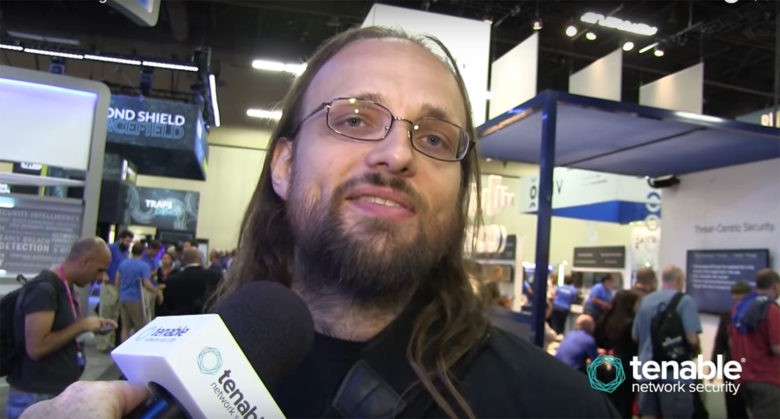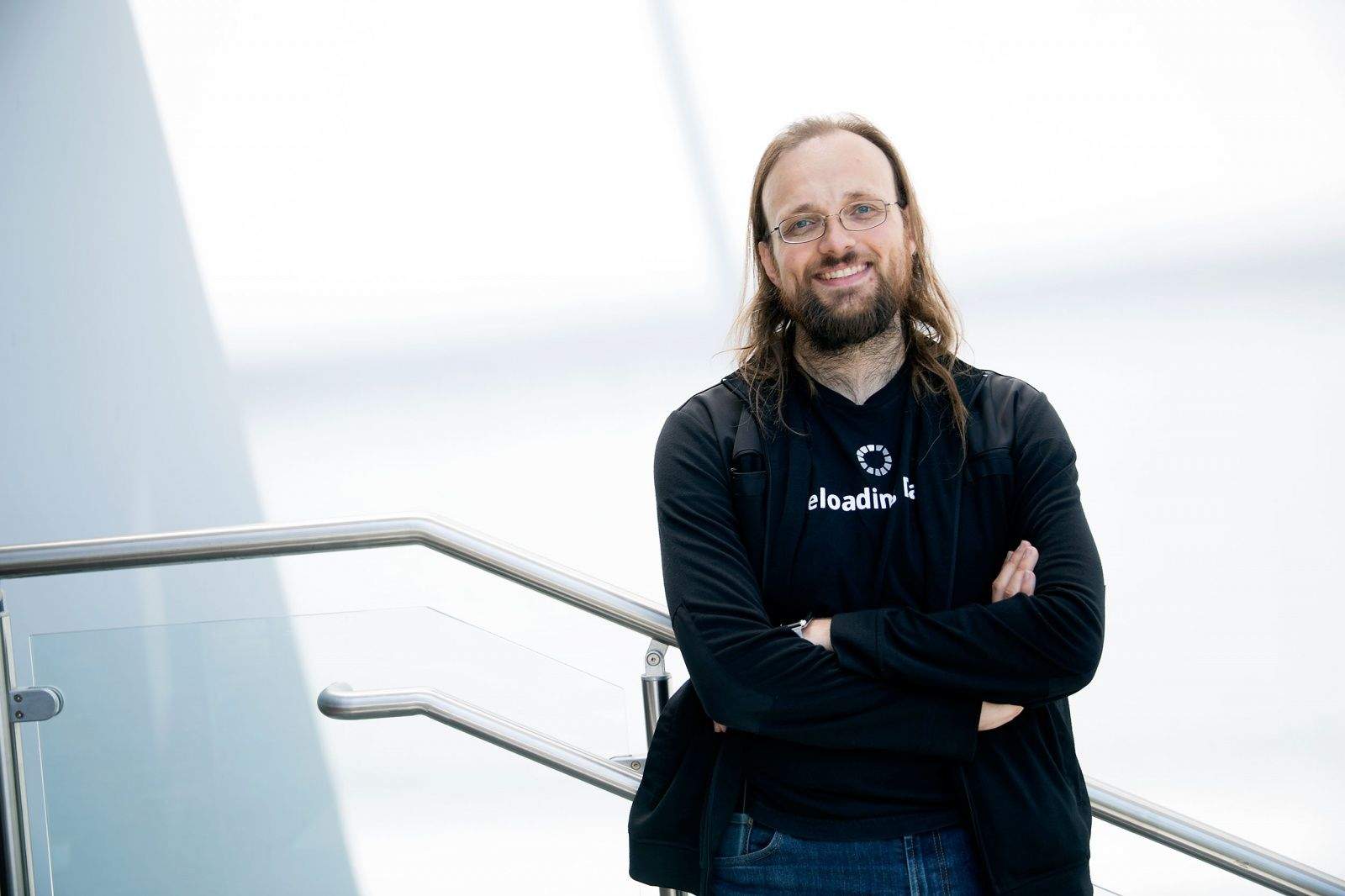 This is the first in a three-part series on jailbreaking iOS.
This is the first in a three-part series on jailbreaking iOS.
The leading figure in the jailbreak community has the ideal name in defending your right to circumvent your iPhone’s operating system.
Jay Freeman is known to serve his community with a Braveheart-like passion, defending the practice with the sharp edge of his intellect and a seemingly inexhaustible energy for argument.
Now if this sounds hyperbolic when all we’re really talking about is hacking your iPhone so you can customize it, the jailbreak community sees this very much as a freedom Apple tries to restrict. Freeman’s own writing often has the heat of a battle cry.
“Congratulations, you just overthrew your Orwellian overlord and have taken back control of your device. At least today we will prevail!”
Yet, these words come from a rather introverted person.
An abridged guide to jailbreaking
Anywhere from six to 12 percent of the Apple users, have jailbroken their iPhone, iPad or iPod touch to give it unique functions. Jailbreaking has even been extended to Apple TV and the Apple Watch.
With each update Apple issues, hackers go to work in search of a bug in the operating system that gives them a way in. Once identified, they go to work on writing code that allows users to take over their devices and add new features. Tweak developers in the community work on developing modifications that let users change the color of the keyboard, use alternate designs for icons, or add certain notifications to the lockscreen.

Photo: Jeff Benjamin
Apple closes any loopholes with an update, and users wishing to keep their custom functions need to continue to use the older, jailbroken iOS version until new breaks can be developed.
There are risks. Apple warns users can become vulnerable to outside hacks through malware that could lead to viruses and the stealing of personal information. In August 2015, more than a quarter-million users from 18 countries with iPhones had accounts stolen. The account information stolen included device IDs, logins and purchasing receipts, and was pulled from jailbroken devices.
The jailbreak community is quick to respond, sounding the alarm on Twitter and Reddit and trying to solve problems that come up. Certain tweak developers gain a kind of celebrity status and many say problems can be avoided by being sure to use products from reputable developers.
Saurik shall lead them
Freeman may be the community’s brightest star for creating Cydia, a platform that is often compared to Apple’s App Store. Since 2008, it has served as a kind of storefront for jailbreak developers selling and sharing unique features and by 2011, had $10 million in annual revenue and 4.5 million weekly users.
Cydia is a reference to the codling moth, a known pest in agriculture that is particularly fond of apple orchards.
Several attempts to reach Freeman for this story were unsuccessful. What we know about Freeman, who also goes by his longtime Twitter name, Saurik, is gleaned from past interviews, recorded talks at jailbreak conferences and his own prolific writings on Reddit.
Freeman, 34, has a beard, long hair, kind eyes framed by glasses, and seems most comfortable in a black T-shirt and jeans, especially when he makes the rounds at various conferences. He’s generous with his knowledge, but friends and acquaintances say he can be abrupt in conversation if he thinks a person, even a close friend, is wrong.
He is pictured on his website wearing a tuxedo playing a violin with his back turned. He recently ran for a seat on the Santa Barbara County Board of Supervisors, but finished third in the polls.
He says he became interested in computer programming in second grade and by high school, he had a web design and consulting company called Cyber Universe. He holds a B.S. in creative studies with an emphasis in computer science from the University of California Santa Barbara, where he is a Ph.D. student, according to his website.
While friends were gushing over the first iPhone, which debuted in 2007, Freeman was attached to a Nokia phone and rather incredulous about the functions the iPhone didn’t have.
“I really enjoyed using a Nokia candy bar phone and it had a bunch of features I grew attached to,” Freeman said in a 2012 interview with The Unofficial Apple Weblog YouTube show Origin Stories. “But all my friends got an iPhone, but some of the features that I had grown attached to, like sending a text message to multiple people at the same time … these were features the iPhone didn’t have. I almost got the impression that when Apple decided to build a phone, they didn’t do their homework on the use case for all the different features even though they completely nailed down all the complicated things like the web browser, stuff like that.
“So it was a really weird decision of do I have the really good phone or the web browser in my pocket? So a friend of mine, he told me there is this thing called jailbreaking and if you jailbreak your phone you can change all the software. He said, ‘You’re a software developer, why don’t you just jailbreak your phone and do all of that.’ That got me really excited. So instead of having to choose the features that were given to me, I was able to decide what features I have.”
In a TED Talk in 2010, Freeman said the desire to customize the phone is no different than how we shop for cars. We spend so much time in our cars that they become extensions of ourselves. So we customize them, buying different wheels, adding a spoiler, replacing the stereo system and even picking a particular scent of an air freshener to hang in the rearview mirror.
The burden of leadership
When a fan and employee of Best Buy spotted Freeman shopping for a TV three years ago, he talked him into posing for a picture. The employee later posted it on imgur and declared himself “the first stranger to recognize him.”
Freeman says he feels awkward when recognized, especially when he is shopping for a soap saver at a Bed, Bath and Beyond, as he recounted on Reddit.
He finds the notoriety mostly positive and has no regrets, but he can admittedly bristle when repeatedly asked the same questions: When is the next jailbreak? and Have you ever been contacted by Apple? (once to make a job offer, he said). In his writings, he likes to use the occasional winking emoticon with its tongue stuck out, perhaps as a way to soften the tone of a sentence.

Photo: Tenable Network Securityy/YouTube
“However, the result is that I often feel like, when I’m out, I’m ‘being watched’ constantly in a way that isn’t true when you are totally a random person,” he wrote on Reddit in response to the fan picture. “I thereby find myself sometimes going to fewer places than I normally would have, simply because of the mental load of being ‘that guy who does stuff with jailbroken phones.’
“You can only take so much before an introverted person like me just needs to go home and take a rest.”
Mitch Stoltz, senior staff attorney for the Electronic Frontier Foundation, is not surprised to hear of Freeman’s occasional need to retreat and regenerate.
“I don’t think it’s uncommon in the tech industry to find people who are not comfortable in front of crowds, but can and do exercise a lot of leadership in the online community,” Stoltz told Cult of Mac.
That leadership, though, is what help keeps jailbreaking legal in the United States.
Customizing is not stealing
Every three years, the EFF lobbies the Library of Congress to keep jailbreaking exempt under the Digital Millennium Copyright Act. It has been successful since 2009 — in part because Freeman is a key witness in support — but the EFF continues to fight to change the law and make exemptions renewable without litigation.
“He testified in the hearings in 2012 and 2015 and I think he really gave the in-the-trenches view of jailbreaking,” Stoltz said. “He speaks really definitively on why it’s important and how widespread it is. He makes the point very strongly that there’s a big distinction between getting apps without paying for them and customizing devices.”
Apple lobbied the Copyright Office in 2009 to make jailbreaking illegal, but the company did not file briefs or send attorneys for hearings in 2012 and 2015.
Except for the occasional security problem, Apple stays relatively quiet about the issue of jailbreaking. They now give credit to those who discover bugs in its operating system and are developing a bug bounty program.
But Saurik remains vigilant and chatty where he is most comfortable, on Reddit. On Tuesday, Freeman responded to the question “Why is Apple against jailbreaking?” with the customary, thoughtful and lengthy response.
He said he believes keeping the system under wraps is Apple’s way of making sure users continue to purchase its hardware.
“Apple wants ecosystem and developer control,” he wrote. “They want to guarantee experiences lead to users trusting the platform and being generally excited to buy more/newer hardware.”
Apple unveils the iPhone 7 next week.



